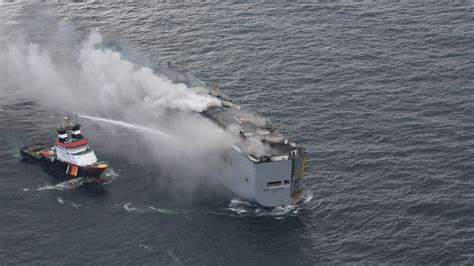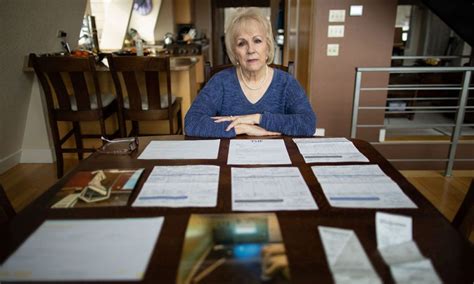
Transgender graduates of the Air Force Academy, who met all requirements for commissioning, have been denied their commissions due to a current Department of Defense policy. These cadets, who openly transitioned during their time at the Academy, are now facing uncertainty regarding their future military careers.
Several transgender Air Force Academy graduates have been denied commissions despite fulfilling all academic, physical, and leadership requirements, sparking concerns over current Department of Defense (DoD) policies and their impact on transgender service members. The denials stem from a DoD policy implemented after a directive from the Trump administration, which restricts the military service of transgender individuals, particularly those requiring hormone therapy or who have undergone gender transition.
These graduates, who openly transitioned while at the Academy, navigated the rigorous demands of military education and leadership training, fully disclosing their gender identity throughout their cadetship. Their situations highlight a significant conflict between the Academy’s commitment to diversity and inclusion and the broader DoD regulations currently in place.
“These individuals met every standard, Academy standard, DoD standard,” said Jennifer Dane, Executive Director of the Modern Military Association of America (MMAA). “They raised their right hands, they swore to support and defend the Constitution of the United States and they successfully graduated from a commissioning source, the Air Force Academy.”
The policy in question, implemented following a period of review after the lifting of the previous ban on transgender service members under the Obama administration, generally prohibits individuals who require hormone therapy or have undergone gender transition from serving, with limited exceptions. While the Biden administration has signaled a more inclusive approach, the policy remains in effect, impacting these recent graduates.
The Air Force Academy has been recognized for its efforts to create a more inclusive environment for LGBTQ+ cadets. However, these recent commission denials reveal a significant disconnect between institutional efforts and overarching DoD policy.
“They met all the requirements. They were academically sound, they were physically fit, they were leaders,” said one source familiar with the situation. “And yet, because of this policy, they are being denied the opportunity to serve.”
The impacted cadets now face an uncertain future, with limited options for pursuing their desired military careers. Many had planned for years to serve as officers in the Air Force, dedicating themselves to rigorous training and education. The denial of their commissions not only disrupts their personal aspirations but also raises questions about the military’s commitment to inclusivity and equal opportunity.
The situation has drawn criticism from advocacy groups and lawmakers who argue that the current policy is discriminatory and undermines the military’s readiness by excluding qualified and dedicated individuals. They contend that the policy should be revised to align with the military’s stated values of diversity and inclusion, allowing transgender individuals who meet all other requirements to serve without restrictions.
The denials also highlight the ongoing legal and political battles surrounding transgender rights in the United States. While there has been increasing recognition and acceptance of transgender individuals in many sectors of society, the military remains a contested space, with policies and regulations often reflecting broader societal debates.
The impacted cadets have been offered positions in the Space Force as civilian employees, a move seen by some as a compromise but not a solution. While these positions would allow them to utilize their skills and training within the military context, they would not fulfill their aspirations of serving as commissioned officers.
“It’s not the same as commissioning,” said Jennifer Dane. “They went to the Air Force Academy to become officers, to lead airmen and guardians, and they are being denied that opportunity.”
The situation underscores the need for a comprehensive review of DoD policies regarding transgender service members, ensuring that they are based on objective criteria and do not unfairly discriminate against qualified individuals. Advocates argue that the military should prioritize merit and ability, rather than gender identity, in determining who is eligible to serve.
The Air Force Academy, while striving to create an inclusive environment, is ultimately bound by DoD policy. The current situation raises questions about the Academy’s ability to fully support its transgender cadets in achieving their career goals. The Academy has expressed its commitment to supporting all cadets and graduates, but its options are limited by the existing regulatory framework.
The future of these transgender graduates remains uncertain, pending potential changes to DoD policy or individual waivers. Their cases serve as a poignant reminder of the challenges faced by transgender individuals seeking to serve their country and the ongoing need for greater understanding and acceptance within the military. The denials have also prompted calls for legislative action to ensure equal opportunities for transgender service members.
The situation is further complicated by the fact that some transgender individuals have been able to serve openly in the military since the lifting of the previous ban. However, the current policy creates a complex and often inconsistent set of rules, leading to uncertainty and potential discrimination.
The impacted cadets are now exploring their options, which may include pursuing legal challenges or seeking support from advocacy groups. Their cases have the potential to spark broader discussions about transgender rights in the military and the need for a more inclusive and equitable approach. The Modern Military Association of America (MMAA) is actively working to support these graduates and advocate for policy changes.
The denials also highlight the psychological toll that such experiences can take on individuals who have dedicated themselves to serving their country. The uncertainty and potential for discrimination can create significant stress and anxiety, impacting their well-being and future prospects.
The DoD has stated that its policies are based on military readiness and effectiveness, but critics argue that these justifications are not supported by evidence and that transgender individuals can serve effectively without compromising military standards. They point to the experiences of other countries, such as Canada and the United Kingdom, where transgender individuals have been able to serve openly without any negative impact on military readiness.
The current situation underscores the importance of ongoing dialogue and education about transgender issues within the military. By fostering a greater understanding and acceptance of transgender individuals, the military can create a more inclusive environment and ensure that all qualified individuals have the opportunity to serve.
The impacted cadets’ stories are a testament to their resilience and determination. Despite facing significant challenges, they have remained committed to their goals and aspirations. Their experiences serve as an inspiration to others and highlight the importance of fighting for equality and justice.
The denials have also raised questions about the role of political ideology in shaping military policy. Some argue that the current policy is driven by political considerations rather than objective assessments of military readiness. They contend that the military should be guided by evidence-based policies that prioritize merit and ability.
The situation serves as a reminder that the fight for transgender equality is far from over. Despite progress in many areas, transgender individuals continue to face discrimination and challenges in various aspects of life, including military service. The ongoing legal and political battles underscore the need for continued advocacy and education to ensure that transgender individuals are treated with dignity and respect.
The impacted cadets’ cases are a stark reminder of the human cost of discriminatory policies. Their dreams of serving as officers in the Air Force have been put on hold, and their futures remain uncertain. Their stories serve as a powerful call to action, urging policymakers to reconsider the current policy and ensure that all qualified individuals have the opportunity to serve their country.
The Air Force Academy has a long tradition of producing outstanding officers who have served with distinction throughout the world. The denial of commissions to these transgender graduates undermines that tradition by excluding qualified and dedicated individuals based on their gender identity. The situation calls for a renewed commitment to diversity and inclusion within the military, ensuring that all individuals are judged on their merits and abilities, not on their gender identity.
The Modern Military Association of America (MMAA) is actively working to support these graduates and advocate for policy changes. They are providing legal assistance, counseling, and other resources to help the impacted cadets navigate the challenges they face. The MMAA is also working to raise awareness about the issue and advocate for legislative action to ensure equal opportunities for transgender service members.
The situation underscores the need for greater transparency and accountability in the military’s decision-making processes. The reasons for denying commissions to these transgender graduates have not been fully explained, raising concerns about potential bias and discrimination. A more transparent and accountable process would help to ensure that all decisions are based on objective criteria and that all individuals are treated fairly.
The impacted cadets’ stories are a powerful reminder that transgender individuals are just like everyone else. They have the same hopes, dreams, and aspirations as anyone else, and they deserve the same opportunities to succeed. The denial of commissions to these graduates is a setback for transgender equality, but it also serves as a catalyst for continued advocacy and education.
The future of these transgender graduates remains uncertain, but their resilience and determination are an inspiration to us all. They have demonstrated their commitment to serving their country, and they deserve the opportunity to fulfill their dreams. The ongoing fight for transgender equality in the military is a fight for justice and fairness, and it is a fight that we must all support.
The situation highlights the complex interplay between federal policy, military regulations, and institutional values. While the Air Force Academy may strive to be inclusive, it is ultimately constrained by the broader policies of the Department of Defense. This creates a tension between the Academy’s commitment to diversity and its obligation to enforce federal regulations.
The denial of commissions also raises questions about the long-term impact on the military’s ability to attract and retain talented individuals. If qualified individuals are denied opportunities based on their gender identity, it may discourage others from joining the military or pursuing leadership positions. This could ultimately undermine the military’s readiness and effectiveness.
The impacted cadets’ cases are a reminder that the fight for equality is not just about policy changes, it is also about changing hearts and minds. It requires a commitment to education and understanding, as well as a willingness to challenge prejudice and discrimination. The military has a responsibility to create a culture of respect and inclusion, where all individuals are valued and treated with dignity.
The ongoing debate over transgender military service reflects broader societal divisions over gender identity and LGBTQ+ rights. These divisions often play out in the political arena, with policies and regulations being shaped by partisan considerations. The military, as a non-partisan institution, should strive to remain above these divisions and focus on creating a fair and equitable environment for all service members.
The impacted cadets’ stories are a testament to the power of resilience and hope. Despite facing significant challenges, they have remained committed to their goals and aspirations. Their experiences serve as an inspiration to others and highlight the importance of fighting for equality and justice. Their stories are a reminder that progress is possible, but it requires continued effort and dedication.
The denial of commissions to these transgender graduates is a setback, but it is not the end of the story. The fight for transgender equality in the military will continue, and with the support of advocacy groups, lawmakers, and the public, progress can be made. The goal is to create a military that is truly inclusive and equitable, where all qualified individuals have the opportunity to serve their country to the best of their abilities.
The situation also highlights the need for improved mental health support for transgender service members. The uncertainty and potential for discrimination can create significant stress and anxiety, impacting their well-being and future prospects. The military should ensure that all service members have access to the mental health services they need to cope with these challenges.
The impacted cadets’ cases are a powerful reminder that the fight for equality is a fight for human dignity. It is about ensuring that all individuals are treated with respect and that they have the opportunity to live their lives to the fullest. The denial of commissions to these graduates is a violation of their human rights, and it is a reminder that the fight for justice is far from over.
The Air Force Academy, as a leading institution of military education, has a responsibility to lead the way in creating a more inclusive and equitable environment for all service members. This requires a commitment to diversity and inclusion, as well as a willingness to challenge discriminatory policies and practices. The Academy should work with the Department of Defense to ensure that its policies are aligned with its values and that all qualified individuals have the opportunity to serve.
The impacted cadets’ stories are a reminder that the fight for equality is a fight for the future. It is about creating a world where all individuals are valued and respected, and where all individuals have the opportunity to reach their full potential. The denial of commissions to these graduates is a setback, but it is also an opportunity to recommit to the fight for justice and to create a better future for all.
FAQ Section:
Frequently Asked Questions (FAQs) Regarding Transgender Cadets Denied Air Force Commissions
-
Why were these Air Force Academy graduates denied commissions?
The graduates were denied commissions due to a current Department of Defense (DoD) policy that restricts the military service of transgender individuals, particularly those requiring hormone therapy or who have undergone gender transition. This policy, implemented following a directive from the Trump administration, remains in effect despite signals of a more inclusive approach from the Biden administration. According to the news article, “These individuals met every standard, Academy standard, DoD standard,” as stated by Jennifer Dane, Executive Director of the Modern Military Association of America (MMAA), highlighting the discrepancy between their qualifications and the policy’s restrictions.
-
Did these cadets meet all other requirements for commissioning?
Yes, according to sources familiar with the situation and as reported in the news article, these cadets met all academic, physical, and leadership requirements for commissioning. “They met all the requirements. They were academically sound, they were physically fit, they were leaders,” said the source. This suggests that the sole reason for the denial was their transgender status and the related DoD policy.
-
What options are available to these graduates now?
The impacted cadets have been offered positions in the Space Force as civilian employees. However, this is viewed as a compromise and not a solution by many, as it does not fulfill their aspirations of serving as commissioned officers. They are also exploring other options, including potential legal challenges and seeking support from advocacy groups like the Modern Military Association of America (MMAA). The MMAA is providing legal assistance, counseling, and advocating for policy changes.
-
What is the Modern Military Association of America (MMAA)’s stance on this issue?
The MMAA is strongly advocating for policy changes to allow transgender individuals who meet all qualifications to serve without restrictions. Jennifer Dane, the Executive Director of the MMAA, stated, “It’s not the same as commissioning. They went to the Air Force Academy to become officers, to lead airmen and guardians, and they are being denied that opportunity.” The organization is actively supporting the graduates and working to raise awareness about the issue and push for legislative action.
-
What impact does this situation have on the Air Force Academy’s commitment to diversity and inclusion?
The situation highlights a significant disconnect between the Air Force Academy’s commitment to diversity and inclusion and the overarching DoD policy. While the Academy has been recognized for its efforts to create a more inclusive environment for LGBTQ+ cadets, it is ultimately bound by DoD policy. This raises questions about the Academy’s ability to fully support its transgender cadets in achieving their career goals and creates a tension between institutional values and federal regulations. The Academy has expressed its commitment to supporting all cadets and graduates, but its options are limited by the existing regulatory framework.









